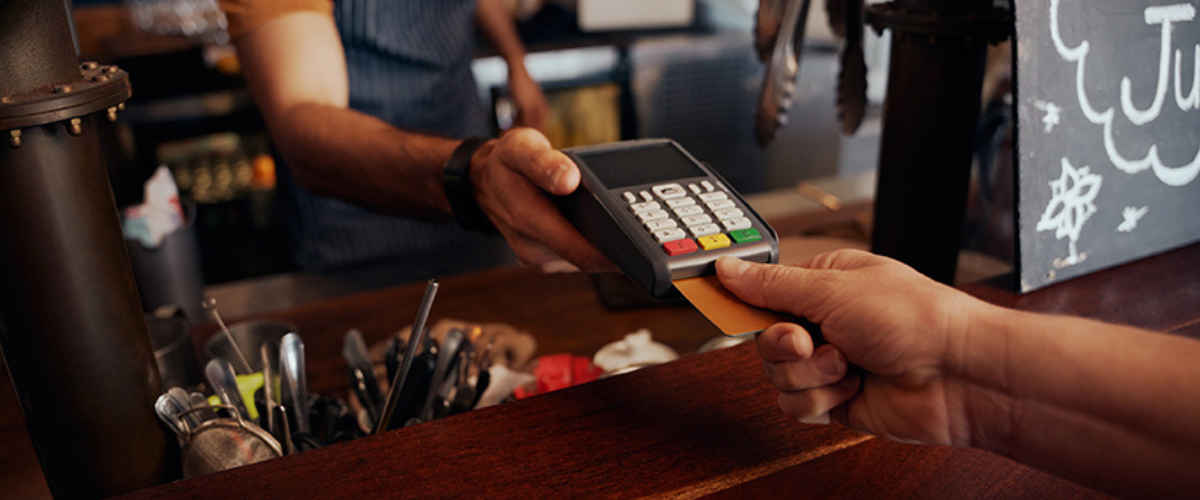Merry Christmas! We will close at 12:00 PM on Wednesday, December 24th (Christmas Eve) and remain closed on Thursday, December 25th (Christmas Day). We will resume regular business hours on Friday, December 26th. Wishing you a wonderful holiday!
Merry Christmas! We will close at 12:00 PM on Wednesday, December 24th (Christmas Eve) and remain closed on Thursday, December 25th (Christmas Day). We will resume regular business hours on Friday, December 26th. Wishing you a wonderful holiday!

As a small business owner, one of the most important things you can do is educate yourself on cybersecurity and how to prevent data breaches. If your business accepts credit card payments in person and/or online, cyber criminals are trying to get their hands on that cardholder information.
A data breach can be very costly, even for small businesses. According to a 2020 report by Kaspersky, the average cost of a single incident for small to medium businesses was $101,000.
To help businesses protect their customers’ payment data, the PCI Security Standards Council, consisting of Visa, Mastercard and Discover, established the Payment Card Industry Data Security Standards (PCI DSS). Today, all businesses that accept credit card payments are required to be PCI compliant.
The PCI Data Security Standards are designed to ensure all companies that accept, process or store credit card information maintain a secure environment for their data to prevent fraud. It is a self-regulated mandate that is enforced by credit card networks and processors.
By adhering to PCI standards, you can protect your business in the following ways:
One of the most common mistakes that could make you non-compliant is writing down the customers’ credit card number on a sheet of paper and not destroying it as soon as it has been used. Cardholder information kept this way can be easily stolen by employees or other individuals.
Another mistake is not adding a standard CAPTCHA to your online payment page. Hackers will oftentimes use bots to test out stolen credit card numbers with many small transactions ($1 or less) to see if they work. This is especially prevalent for nonprofit donation pages, where the payor can select the amount. The CAPTCHA helps ensure that only a human is utilizing the payment page.
The requirements for becoming PCI compliant vary based on your transaction volume over a 12-month period. Merchants will fall into one of four categories:
If your business has multiple locations or you are operating multiple businesses, Visa will add those transactions together to determine your level.
Depending on your level, you will complete a Self Assessment Questionnaire (SAQ) once per year where you think about how you are handling cardholder information. Some sample questions may include:
The questionnaire may serve as a roadmap to compliance. If you don’t pass on the first try, you can make changes to your security procedures based on the results and take it again.
Once you’ve completed the SAQ and made changes to become compliant, you must ensure that the policy is written down and your employees know the proper way to handle customer payment information.
Our partners at Professional Solutions work with SecurityMetrics to administer the SAQs and they have outlined the 12 requirements of PCI DSS compliance on their blog.
The ramifications of not being PCI compliant range from a small monthly fee to a fine large enough to put some small companies out of business.
When you select our partners at Professional Solutions as your credit card processor, becoming and remaining PCI compliant is easy. All merchant customers are automatically enrolled in their PCI DSS program through Security Metrics and the compliance requirements can be completed online.
To learn more about PCI compliance and credit card processing through Professional Solutions, visit their website.
For more tips on how to improve your small business cybersecurity, check out this post on the Biz Buzz Blog.
Experience the Northwest Bank difference--the better banking experience. Contact us today and let's build a brighter financial future together!
Mon - Fri: 7:00 AM - 7:00 PM CST
Sat: 8:00 AM - 12:00 PM CST
General Support: 800-678-4105